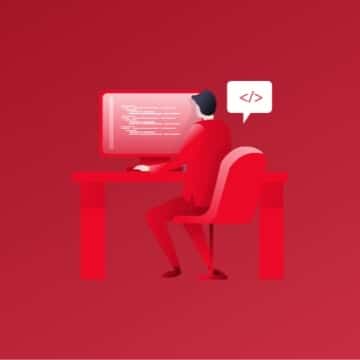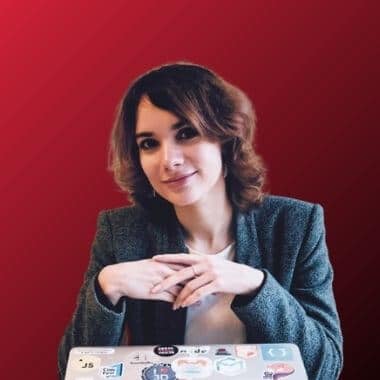These are prime days for IT job hunting. As industries like commercial aviation are going through the darkest days of their history, tech-related businesses are thriving. From entertainment platforms and social networks to online retail and videoconferencing services. Some companies are simply very well-positioned to take advantage of our society’s sudden change of habits.
Enterprise cloud companies have stepped up recruiting to meet the increased global demand for cloud services. Meantime retailers are hiring in mass to meet the demand for online shopping and home deliveries. It is a golden age for technology professionals, and you should take all the advantage you can of it.
This IT job hunting guide will provide you with a review of everything you will need to consider in your journey towards your next professional milestone.

IT job hunting in today’s jobs market
The IT skills gap is rapidly widening as new technologies emerge at an increasing rate and change the way firms operate. For this reason, most recruiters, predictably, name a skills shortage as their top challenge. The scarcity of skilled individuals raises salaries and empowers those with the most in-demand abilities. And so, new skill niches are continuously emerging. Consequently, IT professionals need to stay up to date with new developments if they want to remain relevant.
Learn more about today’s IT jobs market

IT Job Hunting: The right IT job for you
Certainly, outlining the greatest professional route for you based on your requirements and objectives is an art, and like any other kind of art, you must first learn the fundamentals.
Firstly, you’ll have to decide what kind of assignments you wish to do and pick the right firm and industry. Then you should describe your skillset and position yourself in relation to the tasks you wish to pursue. Finally, you will need to present a clean and consistent image.
Here is more on how to find the best IT jobs.
Building your specialist profile
As an IT professional, you must always lookout for new top IT skills to stay current and grow your career. However, with the ongoing growth of IT tools and the changing business climate brought on by the pandemic, deciding where to spend your upskilling efforts might be tough.

Technical knowledge must be updated on a regular basis to keep with current business trends, while softer skills like communication and time management are lifetime assets. The development of data science, the introduction of artificial intelligence, and the strong momentum of cloud computing are all having an impact on the most in-demand IT professionals.
The solution? To familiarise yourself with today’s top IT skills.

The art of CV writing
Once your professional profile and skills are all set up and running, it’s time to make them all come together in a well-rounded CV.
The CV is an essential component of every job seeker’s arsenal, particularly in today’s ultra-competitive IT employment market. These IT professional CV writing ideas can help you stand out from the crowd and land interviews with the finest organizations and positions in the field.
An excellent resume is a succinct and clear summary of your work history, personality, and goals. Because this is the recruiter’s or employer’s first impression of you, you should make it count
Want to know how? Check out our CV writing tips.

Improve your online visibility
First impressions are essential in the online job-hunting environment, just as they are in face-to-face conversations.
After a company or recruiter first identifies a candidate who might be a good fit for the position; they will conduct a thorough review of their digital footprint. Any inconsistencies and red flags found will be taken into account before moving onto the next stage of the process. On the other hand, an insufficient online presence might prevent a candidate from being found in the first place.
It is important that, as an IT professional, you work improve your image and boost your online visibility.

IT job hunting
Skills, check, CV, check. Now it’s time to go out and hunt for a job.
There is no single way of looking for a job. No single platform you should prioritise or sole strategy you should follow. It all depends on your profile, the kind of job you are targeting, and your personal style. Only one thing is true across the board: you have to be smart about it.
You will need to do some research; figure out where your desired employers get their talent from; approach the right people within the industry or organisation and use the right language.
Need more tips? Here’s how to find a job in IT.
Remote IT job hunting and work
Any job hunting guide that wants to stay relevant in a post-world should cover remote hiring and working.
Remote work is becoming increasingly common amongst IT pros. The way in which tech experts look for jobs and carry out missions was already changing before Covid-19 hit. IT freelancing was on the rise; With higher levels of remote work; slowly becoming an industry standard and the figure of the digital nomad gaining acceptance.

Remote employment across nations and time zones has become the norm now that digital transformation initiatives have advanced and organizations have been forced to adapt their hiring tactics to a world in lockdown. Remote employment is here to stay, regardless of country reopenings and a delayed return to the workplace.
But remote working and remote job hunting require a slightly different set of skills of involve different priorities and best practices.
That is why you will need to learn all the details of how to work on remote.

Interview preparation
Interviews are the final show of the job hunting world. And often the part of the process that most anxiety and self-doubt generates. The rise of remote hiring and the subsequent normalisation of online interviews makes this step particularly challenging; as traditional recommendations regarding non-verbal communication no longer apply to the likes of Zoom.
Also read our article about Top 10 In-Demand Tech Skills
Selection procedures may be intimidating, especially when it comes to first interviews. Even if you’re a seasoned pro who believes you’ve got interviewing all under contol; it never hurts to take a second look at how you handle these pivotal moments and see where you can improve. Common sense, like in the case of so many other things in life, can be quite beneficial.
Make sure yo check our tips on how to prepare for an IT job interview.
Onboarding
Congrats! You have gotten the job. The company or client that hired you is clearly excited about what you have to bring to the team. But do not let yourself think that the journey is over yet.
Onboarding is a crucial step in securing your job position and can well determine the impact and effectiveness of your work within this new environment. From properly getting to know your colleagues and your team’s structure to identifying internal workflows and collaboration tools. Therefore, what you learn in those first two weeks is key to ensuring you can give the best you have to offer and remain aligned with business objectives.

This often requires proactiveness on your part. Sometimes, your new employer will not have the time or resources to properly provide you with a welcome package right away. In these cases, you should take the lead and ask for everything you need in order to do a good job. Don’t be shy. Your employer or client will thank you, and it will show initiative, professionalism and commitment.
Working with a recruitment partner like Mindquest can be of great advantage in difficult onboarding situations. As expert recruiters tend to have good knowledge of the project you have been hiring for and know the company well. They will then be able to orient you through the process with minimum effort on your part.
Interested in hearing about onboarding tips from an IT professional who just recently started a new job? Then, check out our interview with Olena Drugalya to discuss her experiences at her first developer job.

Life-long learning
This is something you should do even if you are not looking for a job at the moment. Since technology is continuously evolving, your success as an IT pro depends in great part on your ability to keep up with the most in-demand skills – both technical and other, softer skills.
Therefore, you need to take advantage of the many free online IT courses out there. Here are five courses to get you started that touch upon some of today’s core AI skills. Develop new skills, challenge yourself. Include your new certifications in your CV and LinkedIn profiles. It will show employers you’re not just standing there, idle, that you are also ambitious and in constant motion.
Need more tips on life-long learning? Check out our article about the importance of continuing education.

Seeking a recruiter’s help
While it is frequent for technology experts to be overwhelmed by generic offers from recruiters who do not understand their area of technological focus and personal idiosyncrasies. There are great recruiters out there.
To conclude, specialized IT recruiters can become a life-long career partner for technology professionals looking for a steady income of work and guidance to navigate an ever-changing and fast-evolving job market. Consider working with a partner like Mindquest to easily take your career to the next level, saving time and at no cost to you.
Find more about our recruitment and career services here.






















